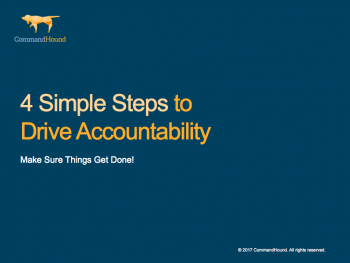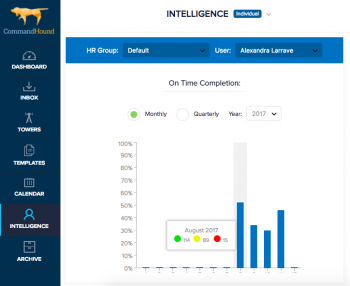Have you come to terms with the fact that accountability is the missing element to drive your team to excellence?
Insights: Management
Ask anyone in your office how they feel about meetings, and you are likely to get passionate responses on both sides of the aisle.
Making the transition from being an entrepreneur-led business to one that operates as an “institution” is not easy. A business that deals with everything that comes their way in a reactive, ad-hoc, team-based manner is not scalable. So, start with clearly defining and communicating a function-based org chart that nicely follows your value-chain.
Headache-causing. Frustrating. Sluggish. These are some of the terms that go through our heads when trying to decode the complex regulatory requirements of Sarbanes-Oxley (SOX).
Nowadays, we are spending more and more time working at all hours of the day and night. Worst yet, we talk ourselves into believing that things will get better soon.
Escalation is a very powerful tool to make sure things get done at work. However, it should be used carefully and judiciously.
We live in a world that measures everything. A world that tells us that metrics are important. However, we often fall on the trap of measuring and reporting on things that are either not useful or not used by anybody.
With such a huge proliferation of task management, getting things done (GTD) apps, and checklist software, it’s no surprise that many attempts have been made to try to simplify the evaluation and selection process.
But have you ever tried to find something in Capterra, one of the most comprehensive software catalogs out there? There are 50+ software solutions listed in each of the following categories: workflow management, task management, and project management.
How are you supposed to compare or evaluate what’s best for your specific situation?
There has been a lot of buzz recently about WOOP. No, not the sound you make when you’re really excited about something. We’re talking about W.O.O.P., a productivity solution developed by Dr. Gabriele Oettingen that provides a framework for accomplishing big goals one step at a time. W.O.O.P. stands for “Wish, Outcome, Obstacle, Plan,” and it outlines the four steps that make it most easy for you to actually accomplish your goals.
The latest data out from the Bureau of Labor Statistics shows that the unemployment rate is at it’s lowest point since the recession and that the labor market is verging on full capacity.
While this is good news for the US economy, it means that you, as an employer, cannot afford to lose even one valuable employee. Turnover is expensive.








